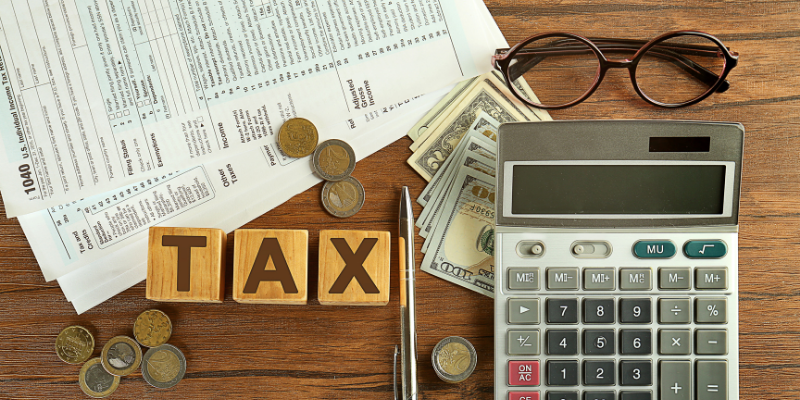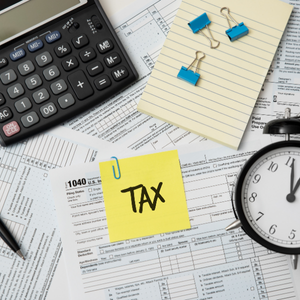
Understanding transaction tax is essential for a smooth and financially sound property transaction in Denton, TX. If you’re a first-time seller, Southern Hills Home Buyers is here to help you calculate your tax obligations quickly and accurately. Our step-by-step guide simplifies the process, so you can move forward with confidence and avoid costly surprises.
Historical Overview of Transaction Taxes in the United States
Transaction taxes have supported government operations since the early days of the United States and have long been a meaningful part of the tax system. These taxes were typically applied to specific goods, services, and financial transactions, offering a way to generate public revenue without relying solely on income or property taxes.
As the country industrialized and urban centers grew, transaction taxes expanded to include items like tobacco, fuel, and real estate sales. By the 19th and 20th centuries, various jurisdictions introduced sales and transaction taxes tied to property transfers and other commercial activities.
Local governments quickly recognized that taxing certain transactions could be an effective way to fund infrastructure and services. In Texas, while a statewide real estate transaction tax is rare, counties such as Denton have implemented their own local versions to help finance regional needs.
Denton, Texas, is notable for its application of real estate-related transaction taxes as part of a broader fiscal strategy. Examining the historical evolution of these taxes reveals how local governments have adapted them to meet changing financial demands.
Understanding Transaction Tax: A Comprehensive Guide

For residents in Denton, TX, understanding the intricacies of transaction tax is pivotal—especially when dealing with real estate transactions. Unlike income tax, a transaction tax (sometimes referred to as a transfer or sales tax) is only incurred when a property changes hands and is typically assessed based on the actual sale price of the home.
As is the case in much of Texas, the transaction tax in Denton plays a notable role in shaping the real estate market, affecting both buyers and sellers. Homeowners should be aware that, in most cases, the transaction tax is the responsibility of the seller and is paid at closing—though this can vary depending on local practices.
It’s important for property owners to stay informed about current transaction tax rates and any changes in local government policies or state laws, as these can directly impact the amount owed. Understanding this aspect of real estate taxation allows homeowners to plan ahead and reduce unexpected financial burdens during a home sale.
Smart planning for the sale or purchase of a property in Denton’s evolving housing market starts with a solid grasp of how transaction taxes relate to overall real estate costs.
Key Differences Between Transaction Tax and Sales Tax
Homeowners in Denton, TX, need to understand the different types of taxes that can apply to property transactions, as these can significantly impact the overall cost of buying or selling a home. One important distinction lies between transaction taxes—commonly applied during property transfers—and sales taxes, which are typically imposed on the purchase of goods and some services.
Unlike general sales tax, which applies to everyday retail purchases, transaction taxes (sometimes referred to as transfer taxes or deed recording fees) are specifically tied to the act of transferring ownership of real estate. These taxes are usually calculated as a percentage of the property’s sale price and are paid directly to the local or state government at the time of closing.
Sales taxes are commonly applied to consumer goods such as electronics, food, or clothing. By contrast, transaction taxes are more focused, affecting individuals involved in real estate deals—particularly sellers, who are often responsible for paying the tax in Denton.
Property owners, landlords, and real estate investors must stay aware of the applicable transfer fees and transaction-based taxes in their area. Understanding these obligations helps with budgeting and financial planning, especially during tax season.
For homeowners in Denton, staying informed about how transaction taxes differ from sales and property taxes can lead to smarter financial decisions when preparing to buy or sell real estate.
The Role of Transaction Taxes in Local Government Revenue
Transaction taxes play a vital role in generating revenue for local governments—especially in places like Denton, TX, where real estate activity is a major economic driver. Denton imposes these taxes on property transfers, and the revenue collected directly supports essential local public services.
These taxes provide cities and counties with a stable source of income that can be allocated toward infrastructure, schools, emergency services, and community programs. By leveraging transaction taxes, local governments can plan for and invest in long-term development goals that improve overall quality of life.
Homeowners recognize that buying or selling property comes with added costs, and transaction taxes are a key part of that equation. However, complying with these tax obligations helps strengthen local self-sufficiency by reducing reliance on state or federal funding.
The Impact of Transaction Taxes on Consumer Behavior

Transaction taxes in Denton, TX, particularly those related to real estate, can significantly influence consumer spending behavior, especially among first-time homebuyers. When purchasing a home, buyers must factor in the added cost of the transaction tax, which can affect overall affordability.
This added expense may delay purchasing decisions or lead buyers to negotiate lower prices to offset the tax cost. Likewise, sellers who are aware of the tax burden on buyers might reduce their asking prices to attract offers and close deals more quickly.
As a result, transaction taxes affect not only individual property negotiations but also broader trends within the local real estate market. By understanding how these taxes work, buyers and sellers in Denton can make more informed decisions and better navigate the financial landscape of real estate transactions.
What Is the Tax Rate for Denton, TX?
For homeowners in Denton, TX, understanding the real estate transaction tax rate is important when dealing with property transactions. This tax rate can impact the overall cost of selling or purchasing property within Denton’s jurisdiction.
As of the latest available information, Denton County may impose certain transaction-related taxes or fees on the sale of real estate. Current and prospective homeowners should be aware that these charges are typically calculated as a percentage of the property’s sale price, which can significantly affect the total cost involved in the transaction.
To remain compliant with local laws and avoid penalties, Denton homeowners should stay informed about any changes to local transaction tax rates. It is advisable to consult a mortgage or tax advisor who is familiar with Texas regulations. Understanding these rates helps property owners plan their budgets more effectively and anticipate the additional costs that may arise during the sale or purchase of real estate in Denton, TX.
Is Sales Tax 8.25% or 6.25% in Texas?
For homeowners in Denton, TX, understanding the distinction between sales tax and transaction taxes related to real estate is essential when buying or selling property. Texas does not impose a state-level real estate transaction tax, but it does have a general state sales tax rate of 6.25%.
However, local jurisdictions such as cities, counties, and special districts are allowed to add up to an additional 2.00%, bringing the total sales tax rate in some areas—including Denton—to a combined maximum of 8.25%. These sales taxes apply primarily to retail goods and services, not real estate sales.
It is important for homeowners to avoid confusing sales tax with taxes associated with property transactions. While sales tax affects everyday consumer purchases, transaction taxes or fees, such as recording fees or transfer taxes, may be part of the closing costs in a real estate deal.
Being informed about both sales taxes and property-related transaction costs ensures that Denton homeowners are financially prepared for the full range of obligations that can arise when buying or selling a home.
What Is Denton, TX Sales Tax?

For people who are planning to buy or sell real estate in Denton, TX, knowing the exact local sales tax will give them the basic information they will need to complete the transaction. The combined sales tax rate impacts various expenditures that typically come with the purchase or sale of property. Denton’s current total sales tax rate is 8.25%, which is a 6.25% state tax and an additional 2% local city and county tax. This tax rate has a considerable impact on the spending directly or indirectly related to home buying, selling, or ownership, and the purchasing of services and appliances.
Denton’s sales tax does not only impact the sales and purchase of the properties. It has a direct impact on the spending and moving for homeowners and real estate investors, hence, it is recommended to plan the tax budget wisely. This will not only help in complying with the local tax laws but will also help in smarter planning and various choices in the process of real estate transactions in Denton.
Navigating the real estate tax process in Denton, TX, doesn’t have to be overwhelming. With the right tools and clear guidance, you can calculate your tax obligations with confidence and avoid surprises at closing. Whether you’re buying or selling, especially if you’re working with investor home buyers in Denton or nearby cities, understanding these fees upfront ensures a smoother, more transparent transaction and helps you plan your budget more effectively.
Don’t let confusion over tax rates or paperwork slow you down. Our easy-to-follow guide empowers you to take control of your real estate journey in Denton. By staying informed and prepared, you’ll not only meet local requirements with ease but also protect your investment every step of the way. And if you’re considering a quick sale, working with a company that buys homes in Plano or nearby cities can help you simplify the process even further. Ready to simplify your next move? Start calculating with confidence today.
Do you need to sell your home? Whether you want to sell quickly, avoid costly repairs, or prefer a hassle-free sale, Southern Hills Home Buyers is here to help. We offer fair cash offers, handle all the details, and make the process seamless. Plus, with our tax calculator, you can easily estimate your tax obligations upfront, so there are no surprises at closing. Ready to sell or have questions? Contact us at (214) 225-3042 for a no-obligation offer. Get started today!
Helpful Denton Blog Articles
- Denton Property Tax Rates
- Denton A Guide To Neighborhoods
- Fascinating Facts About Denton
- Denton Free Activities Insights
- Leading Residential Property Managers For Homes In Denton, TX
- Selling an Inherited House in Denton, TX
- Discover The Best And Worst Neighborhoods For Real Estate Investment in Denton, TX
- Best Neighborhoods For Budget-friendly Living in Denton, TX

| LEVIES | TAX BASED | TAX PAYMENT | INCOME | EFFECTIVE TAX RATE | INCOME TAX |
| INCOME TAX RATE | INCOME TAXES | AVERAGE | USE TAX | TEXAS COMPTROLLER | MORTGAGE |
| DALLAS COUNTY | DALLAS | HARRIS COUNTY | SMARTASSET | MONEY | |
| HOUSTON | FINANCIAL ADVISOR | DALLAS | SAN ANTONIO | MEDIAN | |
| FEEDBACK |
